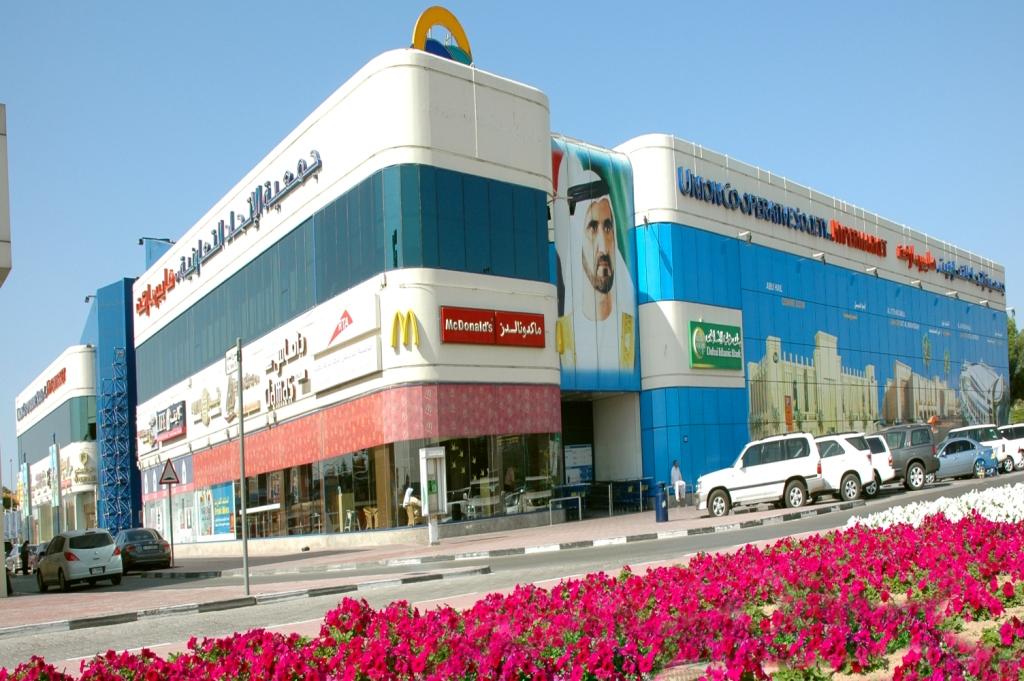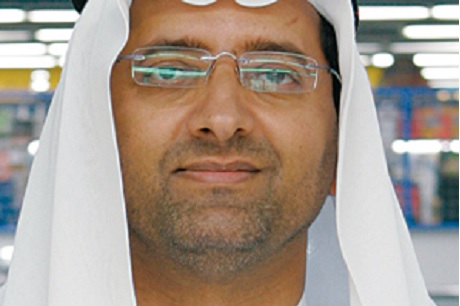Taking Stock – Union Co-operative Society
- Date: October 28, 2014
- Tag: Retail

I
t would be no exaggeration to say that the supermarket and retail sector in the UAE is a highly competitive market segment. With many well-known chains fighting over the lucrative market, the slightest change to add to a firm’s efficiency and staff productivity can go a long way in adding to the bottom line.
Union Co-operative Society (UCS) is well aware of this fact. Formed in 1984 to offer goods at a fair price by providing a consistent link from the producer to the end-consumer, the Society operates seven supermarkets in the UAE, with plans to add two more soon. The firm strives to provide the residents of the country with the best in goods at the most competitive price scales. The board of directors of UCS, as well as the management team, are continuously involved in efforts to improve operations and processes within the company to move UCS up the retail ladder.
M
ohamed Al-Wahedi, the IT manager of UCS since 2006, is acutely aware of the crucial role that IT can play in establishing and maintaining the retail stores at the top of the retail market in the UAE and is constantly involved in devising strategies to that end.
“IT is a critical function for UCS and remains one of the major focus areas for the company’s board of management as well,” he says.
The firm has an effective infrastructure setup across three layers – the access element, the networking and security element and then the server farm or the datacentre. According to him, several steps have been taken over the last two years to not only adopt standards and processes within the organisation’s IT initiatives but also to bring about tighter integration between the business and operational side and the IT team.
There has been a major revamping of IT since last year, where we began to look at putting in place a proper IT strategy. At first, we examined if there was a process for strategy formulation. From there we moved into examining IT governance and management. We started introducing the concept of COBIT for IT governance and ITIL in service management as well as BS7799 and now ISO270001 for security. These three frameworks have been approved by the board of directors and the senior management to be the governing standards for IT,” says Al-Wahedi.
“We have also recently put in place the balanced score card pattern, divided objectives across departments and identified the main initiatives for 2007, 2008 and 2009. We have also put in place the main organisational KPIs. We now talk of cascading the balanced scorecard down to the department level. We are already doing monthly evaluation of employees which are linked to individual balanced scorecards, how far is their project related involvement, their link to the units, its objectives, the IT objectives and, finally, UCS objectives,” adds Al-Wahedi.
The enterprise has also been working hard to establish a closer inter-connect between the business divisions and the IT team’s work. To this end UCS has formed the Business Solution Support Unit.
“This unit is led by a guy with a good background in business and they do the liasing between IT and business units. Among the challenges we face is to meet the exact expectations of the business units. IT is evaluated on solid facts and the unit helps us translate business needs to technology. Initially it was a difficult process – the act of going to each department, explaining that IT is there to help them in their objectives and trying to ascertain accurate expecations and feedback,” says Al-Wahedi.
The IT team struggled to pin down vague dis-satisfactions with projects to the source of the problem. This involved getting through mere perceptions of IT work not done well to the root of how projects were initiated and if there was a business case for them, whether there was a proper appraisal followup and real commitment from the senior leaders for the projects.
“This work led to the concept of joint accountability for IT projects. Now, if any project is business application oriented, then the project manager and the relevant sponsorship has to be from the unit. This has been largely implemented across 2007 and 2008. The unit, which has been operational since mid last year and was made much bigger this July, is also involved in IT and contributes further to business process related exercises,” says Al-Wahedi.
While continuing to liaise between business departments and IT, the unit also brings together focal points in every department who knows all the apps being used and the department’s internal processes. Before any department troubles IT with certain requests, they interact with the specific unit. It’s only after their consideration that a call is taken on whether this really needs to go to the IT department. In other words, the nine-member business support unit also provides the first line of support to the internal business units.
With strategies in place and the business unit taking off an additional load, the 13- member IT team is now actively involved in undertaking new projects that can enhance UCS’s competitive edge. And this includes the recent wireless implementation across the firm’s many stores.
Cutting off
The most important factor that led to the wireless implementation was one connected to logistics. The management felt there was a big need to improve logistics and the operational side of receipt and transfer of goods. It is not convenient to have a network point and machine in every aisle and room of the supermarkets. Most of our operations guys as well as the vendors move while transacting, inspecting shelves and seeing how many things are in any aisle. The physical requirements, the geography of our showrooms, our basements and aisles as well as the business process requirements made the situation a highly suitable candidate for wireless,” says Al-Wahedi.
The company needed a system that would enable them to track all movement of goods whether transfer, receipt, repairs or even orders. All of this was being done manually in the form of data entry at fixed locations. This involved a huge effort considering that the firm handles approximately 30,000 transactions everyday with the vendors. This does not include the PoS transactions which reach around 600,000 everyday. A wireless system seemed to be the best answer to track data in a more efficient and productive manner.
The firm then undertook relevant market research, followed by pilot or beta implementations by certain selected vendors in one of its Dubai stores. UCS was looking for a robust, scalable technology solution with good vendor support and a competitive price. They found the right fit in the Trapeze Mobility solution and carried forth the implementation with EMW (East Meets West).
“The wireless is done in such a manner that each branch can act as an independent network but everything is connected back to the main office. We were very careful with selecting and implementing the solution since it is very crucial to us and, as these connect to the ERP, even the smallest mistakes can have a huge consequence for us,” says Al-Wahedi.
What our cilents say? all testimonails
The most important factor that led to the wireless implementation was one connected to logistics. The management felt there was a big need to improve logistics and the operational side of receipt and transfer of goods. It is not convenient to have a network point and machine in every aisle and room of the supermarkets. Most of our operations guys as well as the vendors move while transacting, inspecting shelves and seeing how many things are in any aisle. The physical requirements, the geography of our showrooms, our basements and aisles as well as the business process requirements made the situation a highly suitable candidate for wireless,” says Al-Wahedi. The firm then undertook relevant market research, followed by pilot or beta implementations by certain selected vendors in one of its Dubai stores. UCS was looking for a robust, scalable technology solution with good vendor support and a competitive price. They found the right fit in the Trapeze Mobility solution and carried forth the implementation with EMW (East Meets West).

